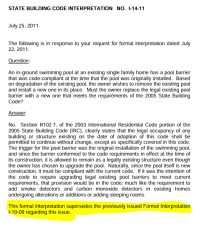Not even close. The contract inspector was supposed to be me in every sense of the word. He has identical authority and responsibility. The company owner and his bean counters have a drive to make a profit and that is wholesome up to the point of purposeful dereliction.While this is absolutely the wrong way to think as a government employee whose job is to promote public safety, this is an entirely legitimate position for a third-party inspection company to take.
I doubt that there is an enormous pool of certified inspectors to choose from in PA. Rock the boat just short of sinking it. Be a force for change. If that falls flat, find another place to work. In the meantime you might consider keeping the failures to yourself.

